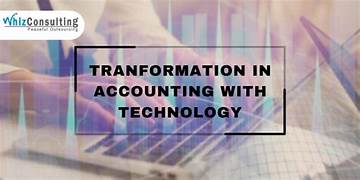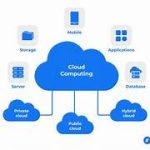How Financial Accounting is Changing with Emerging Technologies
Introduction
The financial accounting landscape is undergoing a significant transformation as new technologies emerge. With automation, artificial intelligence (AI), blockchain, and cloud computing reshaping traditional accounting practices, businesses are experiencing increased efficiency, accuracy, and real-time financial analysis. This article explores the ways financial accounting is evolving in response to these technological advancements.
1. Automation and Artificial Intelligence in Accounting
Automation and AI are revolutionizing financial accounting by streamlining repetitive tasks, reducing human errors, and improving decision-making processes.
Key Changes:
- Automated Bookkeeping: AI-driven software like QuickBooks and Xero automates transaction recording, invoicing, and financial reconciliation.
- Intelligent Data Processing: AI algorithms analyze large volumes of financial data, identifying trends and anomalies.
- Fraud Detection: Machine learning models detect unusual financial activities, reducing risks of fraud and financial misreporting.
2. Blockchain Technology and Financial Transparency
Blockchain is a decentralized and secure ledger system that is reshaping financial accounting by enhancing transparency and security.
Key Changes:
- Immutable Financial Records: Transactions recorded on a blockchain cannot be altered, ensuring integrity and auditability.
- Smart Contracts: Automated contracts execute transactions without intermediaries, reducing administrative costs.
- Real-Time Auditing: Blockchain enables continuous auditing, allowing businesses to maintain compliance without periodic external audits.
3. Cloud Computing and Remote Access
Cloud-based accounting platforms are transforming how businesses manage financial data, allowing for real-time collaboration and accessibility.
Key Changes:
- Remote Accessibility: Financial teams can access accounting records from anywhere, enhancing flexibility.
- Scalability: Cloud solutions can scale with business growth, reducing IT infrastructure costs.
- Enhanced Security: Cloud providers invest heavily in cybersecurity, protecting financial data from breaches.
4. Data Analytics and Predictive Accounting
The integration of data analytics into financial accounting is enabling predictive insights that drive better financial planning and decision-making.
Key Changes:
- Predictive Forecasting: AI-powered analytics assess past financial trends to predict future cash flows.
- Risk Assessment: Advanced analytics identify financial risks and provide actionable insights.
- Customized Financial Reports: AI-driven reporting tools generate tailored financial statements for stakeholders.
5. Regulatory Compliance and Digital Taxation
As governments adopt digital tax reporting and compliance systems, financial accounting is becoming more technology-driven.
Key Changes:
- E-Invoicing and Digital Tax Reporting: Countries are implementing electronic tax filing systems, reducing paperwork and manual errors.
- Automated Compliance Checks: AI and blockchain solutions ensure businesses adhere to regulatory requirements in real time.
- International Tax Management: Cloud-based tax software simplifies tax compliance for multinational businesses.
6. Cybersecurity Challenges in Financial Accounting
While technology enhances efficiency, it also introduces cybersecurity risks that accountants must address.
Key Changes:
- Data Encryption: Ensures sensitive financial data remains protected.
- Multi-Factor Authentication (MFA): Strengthens security measures against unauthorized access.
- Cyber Threat Monitoring: AI-driven security systems detect and prevent financial data breaches.
7. The Future of Financial Accounting
As technology continues to evolve, financial accounting will likely see:
- Greater reliance on AI-driven financial decision-making.
- Wider adoption of blockchain for decentralized financial transactions.
- Increased automation of compliance processes.
Conclusion
New technologies are reshaping financial accounting, making it more efficient, accurate, and secure. Businesses that embrace AI, blockchain, cloud computing, and data analytics will gain a competitive edge, ensuring compliance and financial stability. The future of financial accounting lies in continuous innovation and adaptability.


